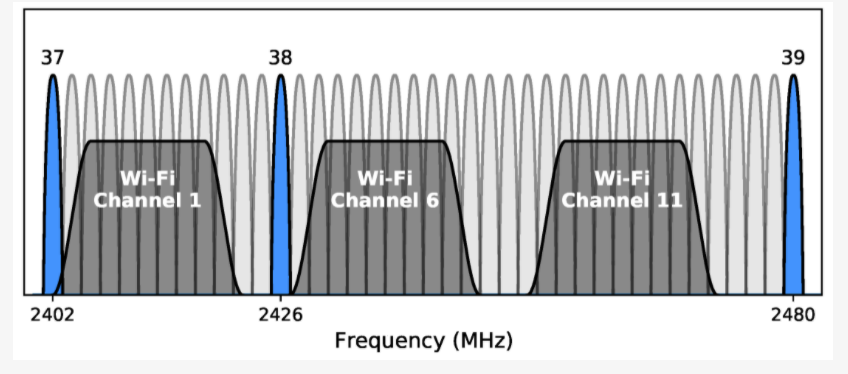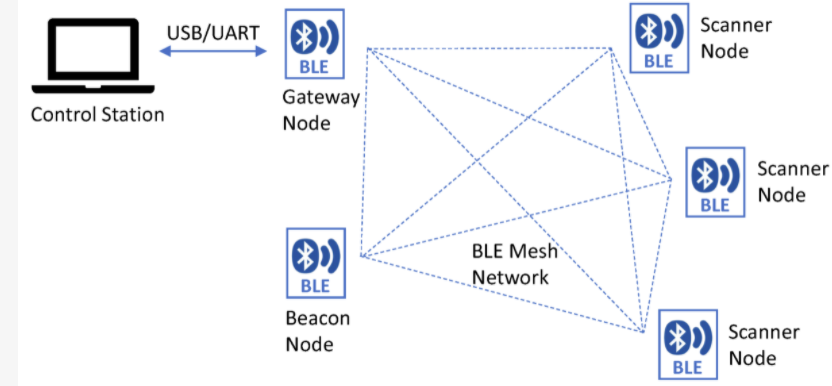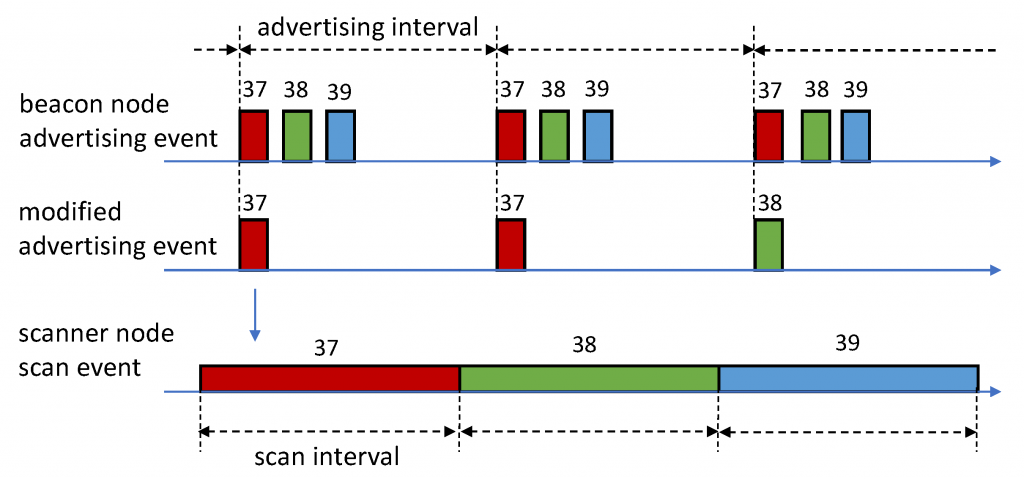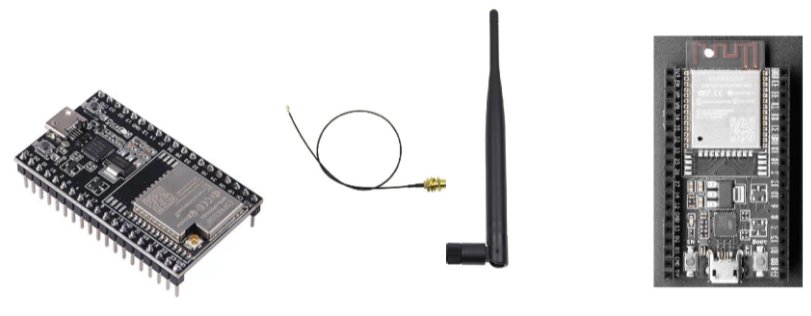There’s new research from the Department of Electrical Engineering, University of North Texas, USA on Measurement and Analysis of RSS Using Bluetooth Mesh Network for Localization Applications. The paper explains how received signal strength (RSSI) based solutions have accuracy limitations in radio multipath (radio reflective) environments. It describes a solution that improves accuracy using Bluetooth mesh and Bluetooth channel-based processing.

A system was created that exploits the space, time, and frequency diversities in measurements. Different Bluetooth channels have different fading effects.

Advertising was modified to make it Bluetooth channel-aware to be able to differentiate the fading effects. It was possible to reduce the residual fitting errors in the path loss models by using a space-time-frequency diversity combining scheme.

The system was demonstrated using ESP32 BLE modules.

The system significantly reduced the residual linear regression fitting errors in path loss models. It was able to more accurately use RSSI to measure the distance between the transmitter and receiver. The researchers demonstrated it’s possible to implement the proposed multi-receiver configuration and the diversity combining scheme using commercial off-the-shelf standard BLE devices.